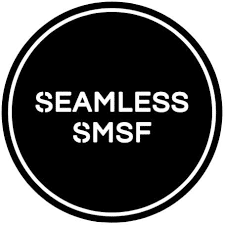From an audit perspective, asking for a property title is one of the most common queries we send to our clients. So why do we ask for them annually?
The ATO expects all auditors to obtain evidence of ownership of property from SMSF trustees. The most appropriate way to do so is to provide a property title. Simply, the property title will reveal who the registered proprietor is. The registered proprietor will either be the corporate trustee, bare trustee, or individual trustee(s). If the registered proprietor is either an individual or company trustee, it would be prudent to execute a declaration of trust as proof of beneficial ownership. A declaration of trust will state that the trustees hold the property on behalf of the SMSF. This will confirm that the superfund is the beneficial owner of the property.
It is important for us to look at the property title to check against any encumbrances over the property. An encumbrance recognises another party’s interest in the property. For example, this interest could be in the form of a mortgage, a lien, or a charge. A question may arise as to the difference between a lien and a mortgage. A lien is a claim over an asset, it is a legal notice that exists because of an unpaid debt. A lien may arise from unpaid taxes, a court judgment, or unpaid bills. On the other hand, a mortgage is a legal agreement between the borrower (the superannuation fund) and the lender (the bank).
As per regulation 13.14 of the SIS Regulations a SMSF must not give a charge over a fund asset. This is simply because another party may have a legal or equitable interest in the property which means the SMSF could be at risk of losing all or part of the asset.
A SMSF can however borrow under a Limited Recourse Borrowing Arrangement (LRBA). Accordingly, it is permissible for a superfund to have a charge over a property under a LRBA because the agreement means that the default of loan repayments will afford the lender recourse to only the single asset purchased under the LRBA.
Here is a glossary of terms which explain the different types of charges that may be found on a property title:
Encumbrance: An encumbrance is claim against a property, such as a mortgage, charge, lien, or restrictive covenant. It is an interest in land by a person other than the title holder.
Mortgage: A mortgage is a legal agreement between a borrower and the lender. The mortgagee (the bank) will provide a loan to the mortgagor (the party purchasing property). In return, the mortgagor will pay interest on the principal.
Charge: A charge is a legal document that creates a proprietary interest in the property. A charge will arise when the property holder gives proprietary interest to a creditor by way of security. A charge can arise by operation of law or by an agreement between two parties.
Lien: A lien may exist over the property because of an unpaid debt. This debt may come in the form of unpaid taxes, a court judgment, or unpaid bills. It is a legal right to the asset by a person other than the legal title holder. A lien can only arise by operation of law.
Caveat: A caveat is a document that acts as a warning. A caveat will be lodged to protect an interest in the property. A caveat is an unregistered interest in the property and is lodged to prevent the property being sold to another person until the interest can be registered. A common caveat is an unregistered lease or mortgage, or an equitable interest in the property.
Restrictive covenant: A restrictive covenant is a condition tied to the property that will limit the how the property can be used. The covenantor is the person has the burden of condition, the covenantee is the person who is benefited from the condition. A restrictive covenant ‘runs with the land’. So, if the covenantor sells their land, the new owner is burdened by this covenant.
Easement: An easement provides the right for another person to use the land. This right does not mean the other person is the land owner, rather they simply have access to the land for a specific purpose. As an example, an easement may provide a ‘right of carriageway’ over property that is landlocked.
Tenants in common: Tenants in common hold their interest in the property separately and may have disproportionate interests. Upon the death of one tenant in common, the interest in the asset will pass to the person of their choice.
Joint tenants: Joint tenants hold the property jointly with equal interests. Upon the passing of one joint tenant, that joint tenant’s equal interest will automatically pass on to the surviving joint tenants. For example, if there are two joint tenants with 50% interest held proportionally, the surviving joint tenant will automatically receive the deceased’s 50% interest upon their death.
Get SMSF support with us today!









Consider doing a free title check to see if there have been any additions to the title. This will save the cost of the title deed search.
Hi Michael, how do you do a free title search please ?